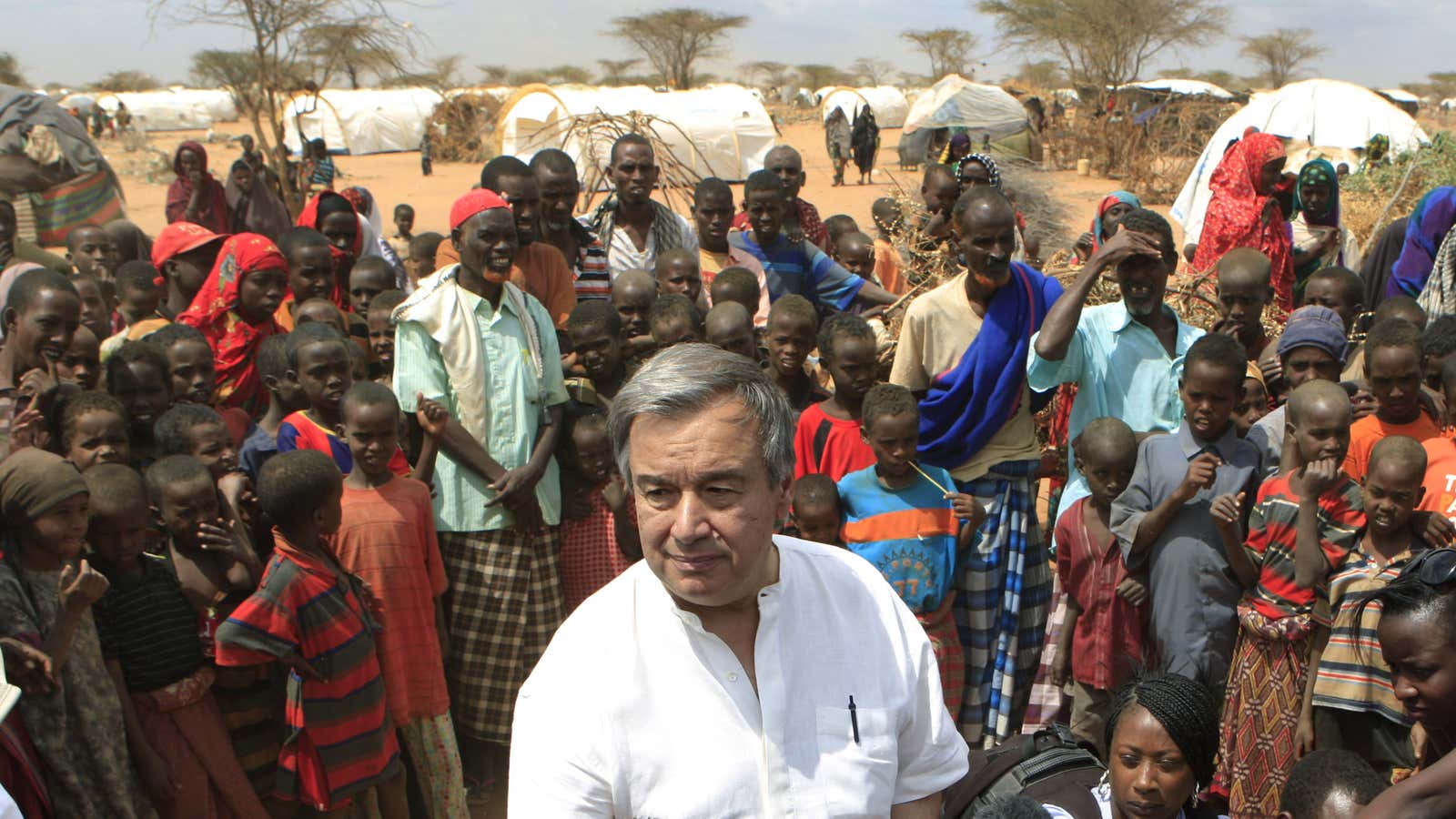António Guterres, 67, the former socialist prime minister of Portugal who led the United Nations High Commission for Refugees (UNHCR) from 2005 to 2015, will succeed Ban Ki-moon as the ninth secretary-general of the UN.
His name was officially recommended today by the UN Security Council, an assembly composed of 15 country delegates, five of which are permanent members—the P5—with power to veto its decisions. They reached their decision after six rounds of unofficial ”straw polls” spread over several months. Yesterday, announcing the results of the sixth straw poll, Vitaly Churkin, the Russian ambassador to the UN, said that Guterres had emerged as a clear favorite.
The security council’s nomination will pass to the General Assembly, which makes the actual appointment.
Guterres has been the leading candidate since the first straw poll, in July, but his choice wasn’t a given. As a western European man, he didn’t fit either of the characteristics that were informally considered essential for the new SG. Russia, one of the P5, was widely thought to want the job to go to an eastern European—the world’s only region to have not had an secretary-general in history. The US, another permanent member, was thought to be set on having a woman.
Several of the candidates had either or both of these qualifications, and while the interest in getting an eastern European representative was predominantly a matter of geopolitical maneuvering, the campaign to have a woman generated interest well beyond the usual for the UN; a third of the member states supported the idea. Of the 13 initial candidates, six were women, and one more joined the race towards the end.
Many, including prominent figures in international development, have met Guterres’s election with disappointment, openly criticizing it as the expression of a boys’ club with all intention of remaining as such; after all, 14 of the 15 ambassadors on the Security Council are men.
But while this may be an annoying missed opportunity for female leadership, there’s a case for saying that Guterres (despite not ranking high on his support for women’s rights, having campaigned against the referendum to loosen Portugal’s strict abortion law) was, if it had to be a man, the best man for the job. Having served as the head of UNHCR for a decade, he is an authority on what’s arguably the most important humanitarian crisis of our time—refugees.
There are now over 65 million refugees in the world—the most in modern history—and anti-refugee sentiment is growing in many countries. Choosing a former head of UNHCR is both a way for the world’s largest inter-governmental body to acknowledge the crisis and its central role in international relations, and to strengthen the UN’s effort in tackling the emergency.




